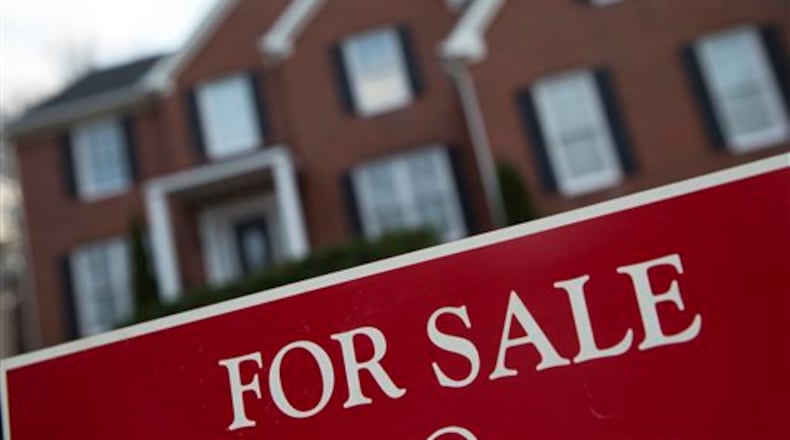Atlanta prices rose 5.8 percent for the past year, as prices climbed a little faster during the spring.
Atlanta was the 11th fastest-rising of the nation’s 20 largest metro areas, according to the S&P/Case-Shiller House Price Index.
Atlanta prices have been rising slightly faster than the national average of 5.5 percent. For the top 20 metro areas, prices were up 5.7 percent.
The steady climb has people starting to use the 'B' word, said David Blitzer, chairman of the index committee at S&P Dow Jones Indices in the report.
“The question is not if home prices can climb without any limit; they can’t. Rather, will home price gains gently slow or will they crash and take the economy down with them?”
But Craig McClelland, chief operating officer of Better Homes and Garden Metro Brokers, dismissed the notion of a bubble, at least for metro Atlanta.
“Nationally, it is unhealthy where they are heading. There is too much growth.”
SO IF THERE’S TOO MUCH DEMAND, WHY ARE LENDERS MAKING IT EASIER TO GET A LOAN?
Atlanta too has a mismatch of supply and demand, McClelland said. “Right now, you put a good house at a decent price on the market and it’s gone in a second.”
But Atlanta has such solid job and population growth that the demand has gotten ahead of supply -- something that the market will adjust to over the next several years, he argued.
THE MOST EXPENSIVE ‘HOODS IN THE CITY OF ATLANTA
The quickest rise in prices is in Seattle, where prices are up 12.9 percent in the past year, according to Case-Shiller.
Second-fastest is Portland, Or., where prices are up 9.3 percent, and Dallas, where prices have surged 8.4 percent in a year.
DILEMMA: BUY OR RENT? ATLANTA RENTS HAVE BEEN FLATTENING
The market has been unbalanced at least since 2015, with the number of potential buyers outpacing the inventory of homes for sale each month. That “shortage” of homes for sale has become more acute in recent months.
Svenja Gudell, chief economist for Zillow, said some of the problem is that builders just aren’t building as many homes as they did in the boom that ended a decade ago. And when they do build, they are much less likely to put up a lower-priced home that first-time buyers can afford.
There are other factors that feed the imbalance, she said. "A surge in the share of single-family homes being converted into rentals is keeping many homes off the market that otherwise may have traded hands every few years.
And while most markets have largely recovered, prices in some neighborhoods have been sluggish about a rebound, leaving some homeowners owing more on their mortgages than the house is worth, she said.
"Buyers' frustrations with the status quo are certainly understandable, but there is no quick fix to these kinds of supply complications," she said.
RELATED: UH-OH FOR HOUSING, ATLANTA POPULATION TO SURGE
Overall, Atlanta prices are still 1.2 percent below the peak of mid-2007. But they have climbed 21.2 percent since hitting bottom in the spring of 2012.
In the past month, Fulton County had the highest level of inventory among the region's core counties: 3.0 months. That was 17 percent lower than a year ago, according to Re/Max Georgia. Cobb had only 2.0 months of inventory, but at least it hasn't lost ground in the past year, according to Re/Max Georgia. (see chart below)
Average price increases, past year:
Seattle 12.9 percent
Portland 9.3 percent
Dallas 8.4 percent
Denver 8.2 percent
Detroit 7.4 percent
Las Vegas 6.8 percent
Boston 6.7 percent
San Diego 6.6 percent
Minneapolis 6.3 percent
Charlotte 6.1 percent
ATLANTA 5.8 percent
Average for top 20 metro areas: 5.7 percent
National average: 5.5 percent
Source: S&P/Case-Shiller House Price Index
MYAJC.COM: REAL JOURNALISM. REAL LOCAL IMPACT.
AJC Business reporter Michael E. Kanell keeps you updated on the latest news about jobs, housing and consumer issues in metro Atlanta and beyond. You'll find more on myAJC.com, including these stories:
Never miss a minute of what's happening in local business news. Subscribe to myAJC.com.
In other Business news:
About the Author
Keep Reading
The Latest
Featured



